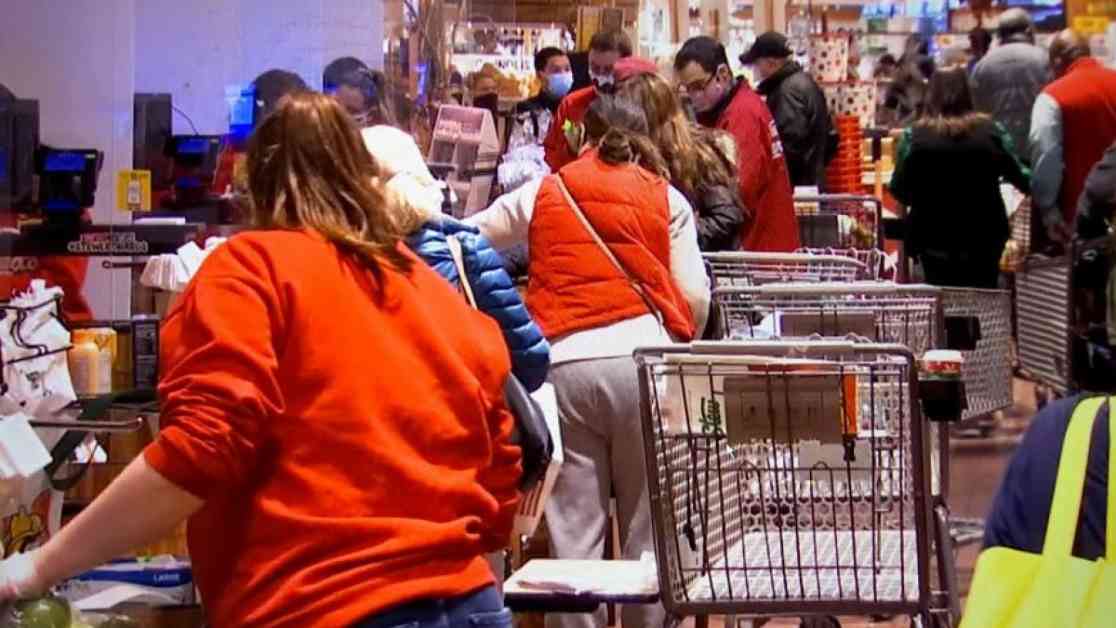A grassroots movement called The People’s Union USA is urging Americans to abstain from spending money on a Friday in what they’re calling an “economic blackout.” The initiative seeks to protest the perceived control that billionaires, large corporations, and political parties have over the lives of ordinary citizens. This boycott is set to begin on February 28, symbolically marking the start of economic resistance without tying to any specific historical event.
In response to recent policy changes by major corporations like Target, which rolled back diversity, equity, and inclusion programs following executive orders from former President Donald Trump, various organizations have launched boycotts. We Are Somebody, a labor advocacy group led by Nina Turner, initiated a targeted boycott of Target on February 1 to coincide with Black History Month. In addition, Reverend Jamal Bryant from Atlanta created targetfast.org to recruit Christians for a 40-day boycott of Target beginning on March 5.
Who’s Leading the Economic Blackout?
The brainchild behind the “24-hour Economic Blackout” is the People’s Union USA, founded by John Schwarz, a meditation teacher based near Chicago. Despite the organization’s claims of non-partisanship, the group champions the interests of all individuals. However, attempts to reach the group for comments went unanswered. The blackout is slated to last from 12 a.m. to 11:59 p.m. EST, urging participants to refrain from making any purchases, especially from large retailers, chains, or fast-food establishments.
Brayden King, a professor at Northwestern University’s Kellogg School of Management, specializing in boycotts and activism, noted that the economic blackout is a manifestation of public dissatisfaction with the current political climate. He emphasized that activists should focus on specific targets and clear demands for effective outcomes.
What Stores are Targeted for Boycott?
The boycott organizer’s website states a straightforward rule: avoid spending money on designated days, which includes refraining from online shopping, fast food, and gas purchases. Instead, participants are encouraged to support local businesses exclusively. The People’s Union USA has outlined a series of upcoming “economic blackouts,” targeting specific stores or brands in the coming weeks, including Amazon, Nestlé, Walmart, and General Mills.
While the economic blackout may impact daily retail sales, Anna Tuchman, a marketing professor at Northwestern University’s Kellogg School of Management, believes it may not be a sustainable strategy in the long run. Drawing parallels with past boycotts such as the one against Goya Foods, Tuchman highlighted that the impact might be short-lived. Despite initial sales fluctuations for brands like Target and Goya, the long-term effects were minimal, indicating the challenges of sustaining prolonged consumer actions.
Afya Evans, a political and image consultant, plans to participate in the economic blackout by supporting small businesses and Black-owned brands. She sees this event as an opportunity for consumers to voice their concerns collectively, hoping to observe tangible impacts on sales. Evans stresses the importance of broad participation and keenly observes the aftermath to strategize future actions.
In the realm of consumer activism, the economic blackout serves as a platform for individuals to unite against perceived injustices perpetuated by powerful entities. While its enduring impact remains uncertain, the collective effort to challenge economic disparities and demand transparency underscores the evolving landscape of civic engagement. Its success hinges on sustained momentum and strategic alignment to effect tangible change within the economic and social fabric of society.












